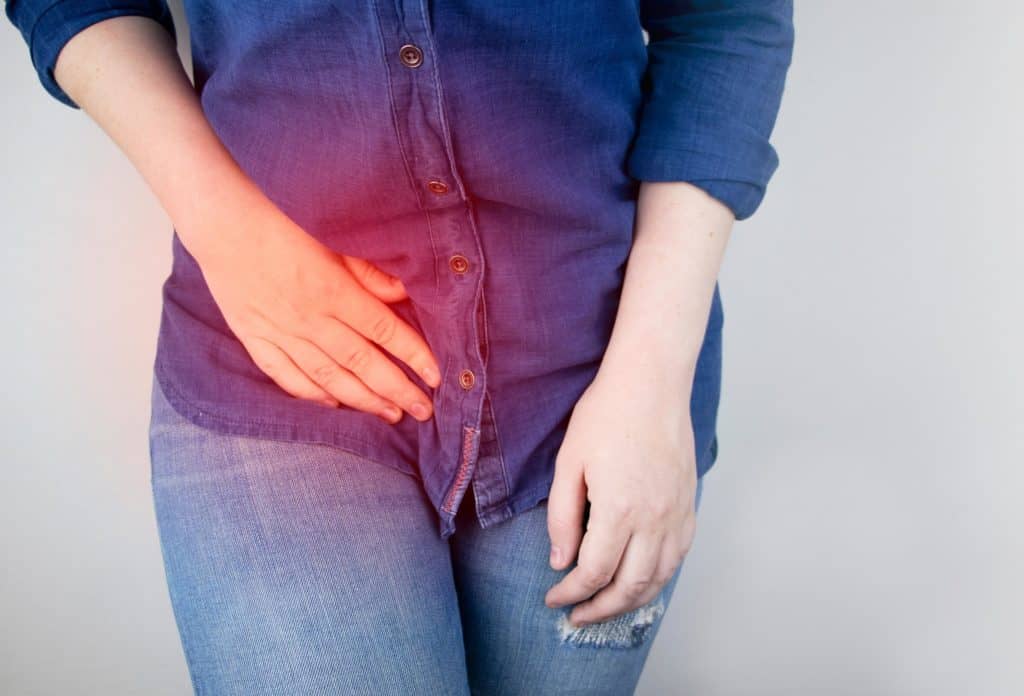
Crohn’s disease is one of the two main conditions within a broader definition known as Inflammatory Bowel Disease (IBD). These conditions are relatively not well known; however more than 80,000 Australians live with IBD (1). As of 2013, PwC estimates that IBD affects about 1 in 250 people aged 5-49 in Australia (1).
You might have or know someone who has Crohn’s disease, or perhaps you’re interested in learning something new – if so, this article is for you!
What is Crohn’s Disease?
Crohn’s is a chronic disease which can be first diagnosed in children, adolescents or adults.
In Crohn’s disease and ulcerative colitis (the 2 common forms of IBD), the digestive tract is inflamed or impacted by the presence of inflammation.
Inflammation isn’t all bad, it’s the normal defence mechanism of our immune system. In a normal inflammatory response, once the harmful substance is gone, inflammation is “turned off”. In IBD, the immune system doesn’t react to the “turn off” signal, so the inflammation continues.
In Crohn’s disease, any part of the digestive tract can be affected – anywhere the food travels from eating to excretion. You can read more about the parts of your digestive system here!
The digestive tract can become damaged from long-term inflammation and cause symptoms. The presence of symptoms can vary depending on the level of inflammation. This can be referred to as active disease (flare ups) in the case of experiencing symptoms or remission where an individual is feeling relatively ok.
What are symptoms of Crohn’s disease?
Some common symptoms include:
- Diarrhoea
- Abdominal pain
- Loss of appetite
- Weight loss
- Blood in stools
- Aching joints, fever, fatigue (2)
If you have these symptoms, it’s worth seeing your GP to investigate further. Several tests may be required for the diagnosis of Crohn’s disease, including blood tests, colonoscopy, gastroscopy and x-rays. It’s important to note that while some of these symptoms are similar to IBS, these conditions are very different!
You can find out more about IBS and other digestive conditions here.
Can diet help with Crohn’s disease?
There is currently no cure for Crohn’s disease. Medications are the main treatment and it’s important to take them as prescribed.
Diet is important for Crohn’s disease, but there’s not one specific diet for managing Crohn’s disease. Instead, nutrition management is highly individualised, based on the person. For example, there may be specific intolerances that differ between people or over time. If you have Crohn’s disease, it’s important to have a dietitian as part of your care team to provide the advice that is right for you.
The goals of nutrition management with Crohn’s disease are to manage intolerances, prevent nutrient deficiencies and prevent malnutrition (3).
In addition to this, dietitians consider the whole person and quality of life. This is so important as we understand that chronic conditions can have a big impact on your life and wellbeing.
Should I take supplements for Crohn’s disease?
Supplement needs will depend on the specific requirements of the individual.
Some reasons for the different nutritional needs in Crohn’s disease include:
- Medications
- Some medications interact with the absorption of nutrients
- Capacity for nutrient absorption
- Treatment for Crohn’s disease can include surgery to remove sections of the digestive tract. Each part of the digestive tract has a role in nutrient absorption. If a section has been removed or is inflamed, this can affect nutrient absorption. In these instances, it is possible that supplementation is needed.
- Active (flare) or remission
- Dietary advice will depend on the timing e.g. active, immediately after active, remission
- Diet
- This can include cultural or religious food practices, vegetarian, vegan, allergies
- Pregnancy, breastfeeding
- There are specific nutrition recommendations for pregnancy and breastfeeding
There are many things to consider for nutrition management of Crohn’s disease and it is recommended to check regularly for nutrient deficiencies. Following a healthy, balanced diet should help to avoid the need for supplements. However, as you can see above there are several reasons why supplements could be considered.
Nutrient and supplement considerations for Crohn’s disease:
- Iron
- If someone with Crohn’s disease has iron deficiency anaemia (low iron), supplementation with iron is recommended.
- Vitamin B12
- Vitamin B12 deficiency can occur in Crohn’s disease and be managed with supplementation.
- Vitamin D
- For adults with IBD, there can be a greater risk of low bone mineral density. Long-term effects of this include osteopenia or osteoporosis. Monitoring vitamin D is recommended, and supplementation can be implemented if needed.
- Omega 3
- There is not enough evidence to recommend omega 3 fatty acid supplementation in Crohn’s disease. So far, the research has found that it is probably not effective for maintaining remission in Crohn’s disease.
- Probiotics
- Like with Omega 3’s, the evidence suggests that probiotics are probably not effective for maintaining remission in Crohn’s disease. Therefore, probiotic supplementation is not recommended at this stage.
Have you been struggling with symptoms from Crohn’s Disease and would like further dietary support from a dietitian? Esther can help you!
References
- Improving Inflammatory Bowel Disease care across Australia [Internet]. [place unknown] PricewaterhouseCoopers 2013 [cited 2022 Feb 7]. Available from: https://www.crohnsandcolitis.com.au/site/wp-content/uploads/PwC-report-2013.pdf.
- Crohns and Colitis Australia. About Crohn’s and Colitis [Internet]. [place unknown] CCA 2022 [cited 2022 Feb 7]. Available from: https://www.crohnsandcolitis.com.au/about-crohns-colitis/.
- Bischoff SC, Escher J, Hebuterne X et al, ESPEN practical guideline: Clinical Nutrition in inflammatory bowel disease. Clin Nutr. 2020;39(3):632-653.



